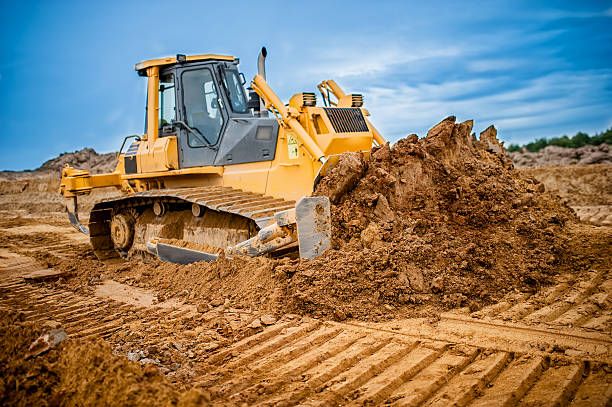In recent years, Nigeria has witnessed several demolitions of buildings, particularly those located along roadsides and unauthorized areas. These actions have sparked debates among affected individuals, urban planners, and investors. If you are considering buying land in Nigeria, particularly in Abuja, understanding the reasons behind these demolitions is crucial to making a smart investment decision.

Reasons for Government Demolitions in Nigeria
1. Illegal Structures and Land Encroachment
Many of the demolished buildings were constructed on government-owned land, road reserves, or green spaces. Some property owners fail to obtain the necessary approvals from regulatory bodies before developing the land. The government, through agencies like the Federal Capital Development Authority (FCDA) and state urban planning departments, periodically clears such illegal settlements to enforce city planning regulations.
2. Urban Renewal and Development Plans
Nigeria’s major cities, including Abuja and Lagos, undergo urban renewal projects to improve infrastructure and traffic flow. Buildings that obstruct these plans are often removed to create space for new roads, rail systems, and modern urban facilities. This contributes to the long-term growth of the city but unfortunately displaces many residents and business owners.
3. Safety Concerns
Many roadside structures are built without proper engineering standards, making them vulnerable to collapse, flooding, and fire hazards. The government intervenes to prevent disasters that could lead to loss of lives and property, ensuring that structures comply with safety regulations.
4. Environmental and Aesthetic Reasons
Shanty settlements, roadside markets, and makeshift houses often contribute to urban disorder, pollution, and traffic congestion. The government’s demolition exercises aim to beautify cities, maintain environmental standards, and create a well-organized urban space.
5. Security Challenges
Some roadside settlements become hotspots for criminal activities, including theft and drug-related offenses. Law enforcement agencies and urban planners argue that demolishing these settlements helps improve security and maintain law and order in major cities.

Where to Buy Land in Abuja: Safe and Legal Investment Areas
For investors looking to buy land in Abuja, it is essential to avoid high-risk areas prone to demolition. Below are some of the safest and most strategic locations to consider:
1. Lugbe
Lugbe is one of the fastest-growing areas in Abuja, located along the airport road. It offers affordable land prices, good infrastructure, and proximity to the city center, making it a great option for residential and commercial investments.
2. Kuje
Kuje is another developing area with large expanse of land at relatively low prices. It is ideal for investors who want to build estates, farms, or warehouses while benefiting from Abuja’s expansion.
3. Gwagwalada
Gwagwalada is a major district in Abuja with universities, government institutions, and good road networks. It is suitable for investors looking to develop commercial or residential properties.
4. Jahi
Jahi is a premium district close to high-end areas like Jabi and Maitama. It is well-planned, making it an excellent location for luxury real estate development.
5. Idu
Idu is an industrial district with emerging residential estates. It is close to the Abuja Light Rail station, making it an attractive location for long-term investment.

Final Advice for Investors
Before purchasing land in Abuja, always ensure that:
- The land has a proper Certificate of Occupancy (C of O) or other legal title.
- It is registered with the Abuja Geographic Information System (AGIS).
- You verify with relevant authorities to ensure that it is not under government acquisition or earmarked for future demolitions.
- You work with reputable real estate agents or developers.
By choosing the right location and following legal processes, investors can secure their properties and avoid future demolitions or disputes.
Government demolitions in Nigeria, particularly of roadside buildings, are driven by legal, environmental, and urban development factors. To avoid losses, investors should be diligent in land acquisition, focusing on legally approved areas with a clear title. Abuja remains a prime location for real estate investment, but careful planning is essential for long-term success. This is why you should contact Bamcom Nigeria Limited because we are your trusted plug when it comes to real estate investment in the city of Abuja.


